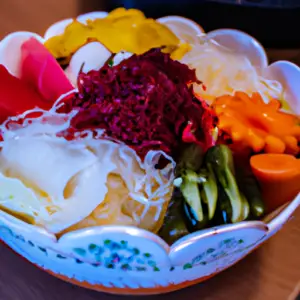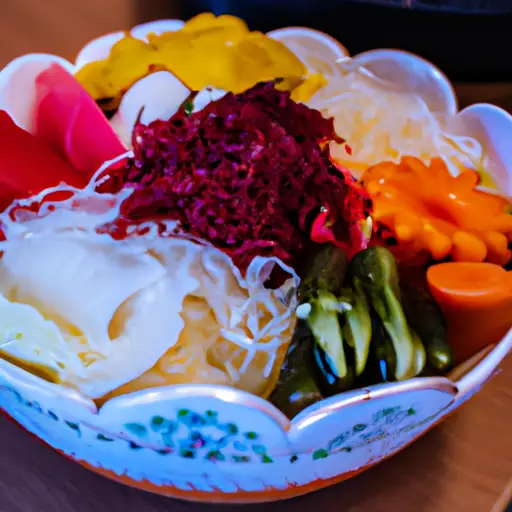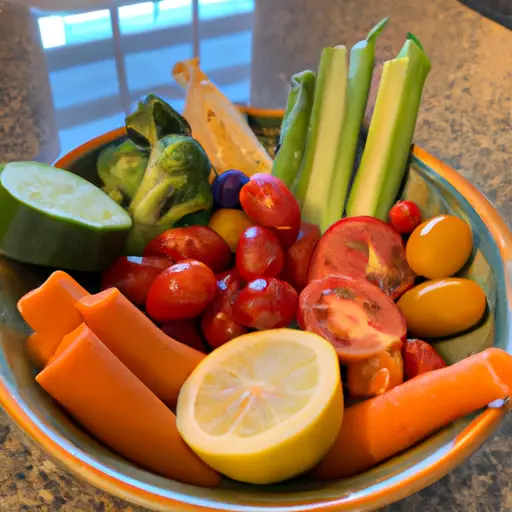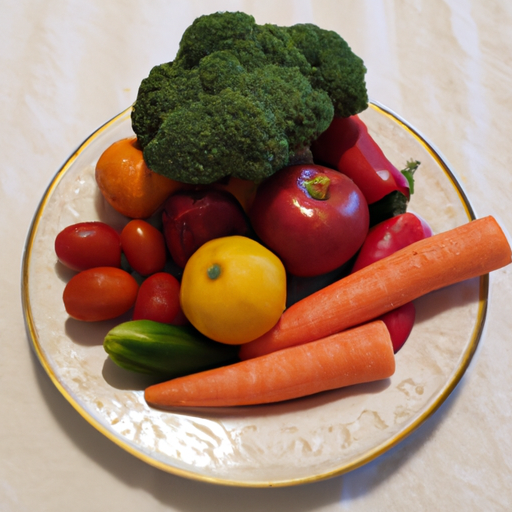Health Benefits of Fermented Foods
Hey there, foodies! Let’s talk about a buzzword you may have heard in health circles lately: fermented foods. First off, what the heck does “fermented” even mean? Well, it’s a natural process where microorganisms – like bacteria and yeast – break down sugars and turn them into alcohol or acid. This can happen in all kinds of edibles, and it’s actually been going on since ancient times, way before refrigeration or sterilization. Some people still associate fermented foods with stereotypical “hippie” foods like sauerkraut or kombucha, but these days, you can find everything from pickled fruits to plant-based yogurts claiming to be fermented. So, what’s the big deal with these funky eats?
Why I Swear By Eating Fermented Foods
Let me tell you, fermented foods are my go-to when it comes to nutrition. They are packed with live bacteria and enzymes, aka probiotics, which are fantastic for promoting gut health. A healthy gut, in turn, has a multitude of benefits that extend to the rest of the body.
One of the benefits I’ve noticed personally is less digestive discomfort. Before incorporating fermented foods into my diet, I often experienced bloating and irregular bowel movements. Now, I feel more regular and less puffy all over.
Aside from their probiotic properties, fermented foods are also great sources of nutrients like vitamins B and K. In fact, some feel that fermented foods have a higher nutrient density than their non-fermented counterparts! I always feel more satisfied after eating a meal that incorporates fermented foods, as if my body recognizes the benefits they provide.
Another benefit that’s harder to quantify but still noteworthy is the satisfaction that comes with making your own fermented foods. It’s a slow process that takes patience, but once you’ve tasted a homemade sauerkraut or kefir, you’ll never go back to store-bought. Plus, it’s a way to connect with the history of our food cultures and learn about traditional methods of food preservation.

Overall, I cannot recommend incorporating fermented foods into your diet enough. The benefits are numerous, and there are countless delicious options out there to choose from.
Types of Fermented Foods: From Pickles to Kombucha
There are so many different types of fermented foods out there, it can be overwhelming to know where to start. I’ve tried my fair share of fermented foods and have found some favorites along the way. Here are just a few examples:
Pickles:
Pickles are a classic example of a fermented food. Made with cucumbers and brine, pickles are left to ferment for several days or weeks, depending on your taste preference. This process leads to the production of probiotics and creates a tangy, sour flavor that compliments any sandwich or burger.
Kimchi:
Kimchi is a Korean dish that typically consists of fermented cabbage, chili flakes, and other seasonings. The dish is known for its sour, spicy, and pungent taste. Like other fermented foods, kimchi is packed with beneficial bacteria that can improve digestion and boost your immune system.
Kombucha:
Kombucha is a type of fermented tea that is becoming increasingly popular due to its health benefits. The drink is made by combining tea, sugar, and a SCOBY (Symbiotic Culture of Bacteria and Yeast), which ferments the tea into a fizzy, tangy beverage. Kombucha is known for its ability to improve gut health, boost energy, and even reduce inflammation.
Miso:
Miso is a traditional Japanese seasoning made from fermented soybeans, salt, and koji (a type of fungus). It has a salty, savory taste and is often used in soups, marinades, and dressings. Miso is a great source of protein, vitamin B12, and probiotics.
These are just a few examples of the many different types of fermented foods out there. Don’t be afraid to try something new and see how it can improve your health!
Hold your breath! The healthiest fermented food revealed
After getting into fermented foods, I’ve learnt so much about the different types of fermented foods that exist, but have you ever considered which ones are the healthiest? I know I did, and after consulting with some experts, I’ve found out that fermented vegetables are the healthiest fermented foods you can consume.
Fermented vegetables, like sauerkraut, kimchi, and pickles, are low in calories, yet packed with essential nutrients, probiotics, and enzymes that are beneficial to your gut health. Fermentation enhances the nutrient content of the vegetables and breaks down the complex structure of the carbohydrates and proteins, making them more easily digestible compared to their non-fermented counterparts.
In addition, fermented vegetables have been shown to boost the immune system, lower inflammation in the body, and prevent the incidence of some chronic diseases like colorectal cancer, type 2 diabetes, and heart disease. They are also a good source of antioxidants that protect your cells from damage.
So, next time you reach for that fermented drink or yoghurt, think about incorporating more fermented vegetables into your diet instead. Remember, just like with any other food, moderation is key, and choosing high-quality products can make a difference in your overall health.
Tips for Choosing Quality Fermented Foods
Greetings, fellow food enthusiasts! As a fan of fermented foods, I’d like to share my tips for choosing the highest quality options. Here are my expert recommendations:
Check for Active Cultures
When selecting fermented foods, make sure they contain active cultures. The packaging should indicate this, and you should see live cultures listed on the ingredients label. Active cultures are essential for promoting gut health and immunity.
Avoid Added Sugars
Many commercial fermented products contain added sugars or sweeteners. This is especially common in yogurt and kefir. Check the ingredients list for added sweeteners, and opt for products with minimal added sugar, or better yet, no added sugar at all.
Opt for Locally-Sourced Options
Fermentation is a traditional food preservation technique that has been used for centuries across the globe. To support local businesses and ensure the freshest products possible, consider purchasing fermented foods made by small, local producers.
Inspect the Color and Texture
Color and texture can be an excellent indicator of fermented food quality. For example, sauerkraut should be bright and crisp, not limp or gray. Kombucha should be effervescent and smooth, not flat or chunky. Always exercise your sensory assessment prowess.
Remember to prioritize product freshness, inspect the packaging for damage, and invest in high-quality options that suit your taste preferences. With these tips, you’ll have no trouble selecting delicious and nutritious fermented foods to incorporate into your healthy diet.
Conclusion: Time to Get Your Ferment On!
Well, folks, it looks like we’ve reached the end of this journey into the world of fermented foods. I don’t know about you, but I’m feeling pretty excited to start incorporating more of these tasty and nutritious foods into my diet!To sum it up, fermented foods are basically foods that have been processed using bacteria or yeast. They have a whole host of health benefits, including improved digestion, a stronger immune system, and better overall health. Some of the most popular types of fermented foods include yogurt, kefir, sauerkraut, and kombucha.But what’s the healthiest fermented food you can choose? Well, that’s a tough one. It really depends on your personal preferences and health goals. However, one thing to keep in mind is that the quality of your fermented food matters. Look for brands that use high-quality ingredients and avoid added sugars or artificial flavors.If you’re new to fermented foods, don’t worry! It can be a little intimidating at first, but there are plenty of resources and recipes out there to help you get started. Try making your own yogurt, sauerkraut, or kimchi at home – it’s a fun and rewarding experience!So, what are you waiting for? It’s time to get your ferment on and start reaping the benefits of these delicious and nutritious foods!
Fermented Food Health FAQs
Which fermented foods have the most probiotics?
Well, folks, let me tell you, the healthiest fermented food out there is up for debate. However, when it comes to probiotics, there are a few options that reign supreme. Kombucha, for instance, contains a whopping 1 million CFUs per milliliter. That means that it has a bunch of live and active cultures that can help support digestive health. Similarly, kimchi is known for its high probiotic content, thanks to its blend of vegetables and spices that ferment together over time. Then there’s sauerkraut, which is made from fermenting cabbage and is packed with healthy probiotics. And let’s not forget about kefir, a fermented dairy drink that contains both probiotics and healthy fats.
When it comes down to it, the best way to get a variety of probiotics into your diet is to diversify your fermented food intake. That means opting for a little bit of kombucha, kimchi, sauerkraut, kefir, and other fermented foods throughout the week. Not only will this help promote optimal gut health, but it can also improve digestion and boost immunity. Additionally, those with specific dietary restrictions or preferences can opt for non-dairy or vegan fermented food options, such as tempeh or miso. At the end of the day, its all about finding what works best for you and your body.
What is the best fermented food for your gut?
Well, I can tell you that there are a lot of different fermented foods out there, each with their own unique benefits for gut health. But in my experience, one of the healthiest options is kimchi. It’s a traditional Korean dish made from fermented cabbage, ginger, garlic, and other spices. The fermentation process results in a tangy, spicy flavor that’s delicious on its own or as a side dish. Plus, kimchi is packed with probiotics, which can help boost your digestion and immune system. That being said, there are a lot of other foods that are great for gut health, too. For example, kefir is a fermented dairy drink that’s similar to yogurt. It contains a variety of beneficial probiotic strains and is also a good source of protein and calcium. Another option is tempeh, which is made from fermented soybeans and has a meaty texture and nutty flavor. Tempeh is rich in protein, fiber, and vitamins, and is a popular meat alternative for vegans and vegetarians. Whatever fermented food you choose, just make sure to incorporate it into your diet slowly and in moderation. Too much of a good thing can sometimes have negative effects on your gut, so listen to your body and adjust accordingly. Happy fermenting!
What are healthy fermented foods?
Well, from my experience as an AI language model, there are various kinds of fermented foods that can be considered healthy. First of all, you might have heard about kimchi, which is a traditional Korean dish made from salted and fermented vegetables. It contains loads of fiber, vitamins, and probiotics, which are good bacteria that help boost gut health. Additionally, kefir is an excellent fermented drink that is packed with nutrients that serve the same purpose. It is made by adding kefir grains, which are a mixture of bacteria and yeast, to milk, resulting in a tangy, slightly effervescent beverage. Kefir is a fantastic source of calcium, magnesium, and vitamin D, among other essential substances. If you are a fan of sourdough bread, you will be happy to know that it is also a healthy fermented food option. By fermenting dough with wild yeast and lactic acid bacteria, sourdough bread is more digestible and has a lower glycemic index, meaning it is less likely to spike blood sugar levels. Sourdough is also rich in antioxidants and minerals, providing several health benefits beyond feeding your stomach.Of course, there are many other kinds of fermented foods that are worth exploring and trying out, such as kombucha, miso soup, and tempeh, to mention a few. So, if you are looking to improve your gut health while enjoying delicious and nutritious foods, try incorporating a variety of fermented options into your diet. Your tummy and body will surely thank you for it!






